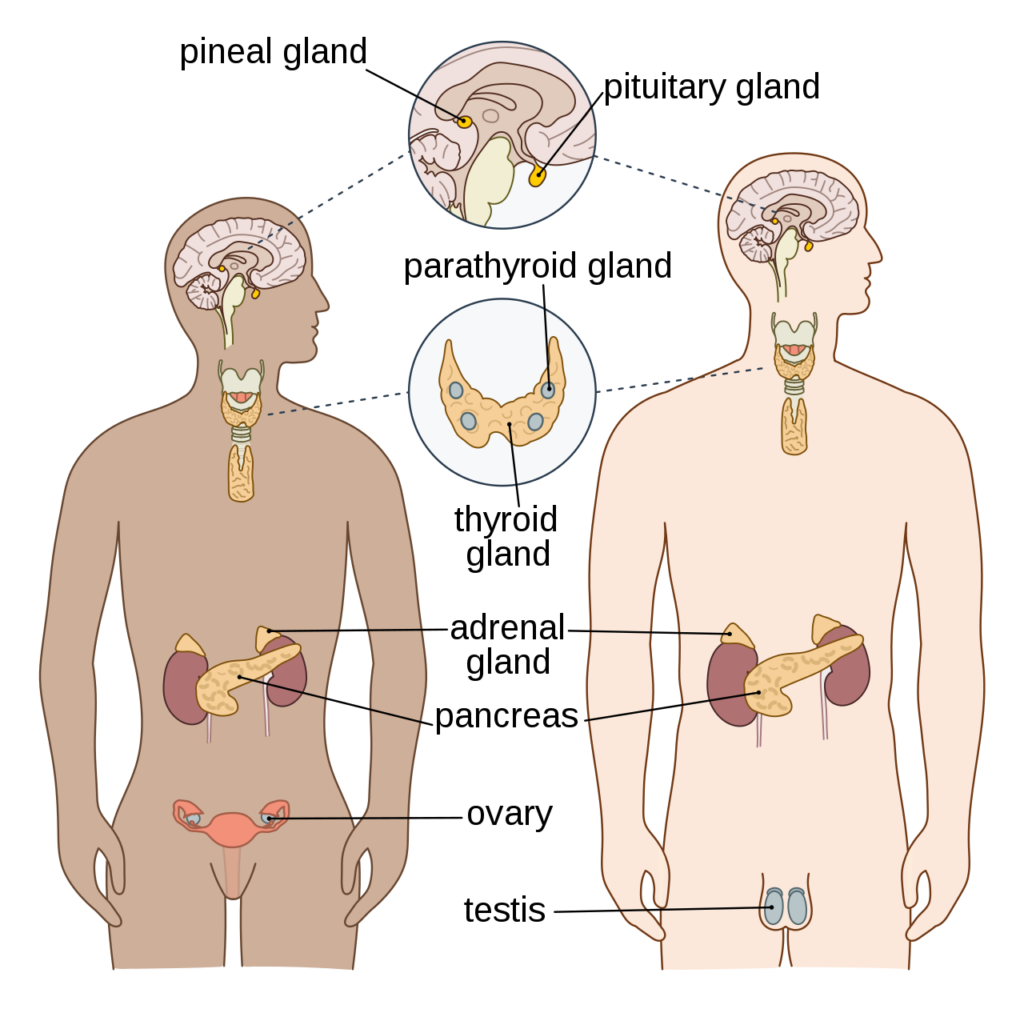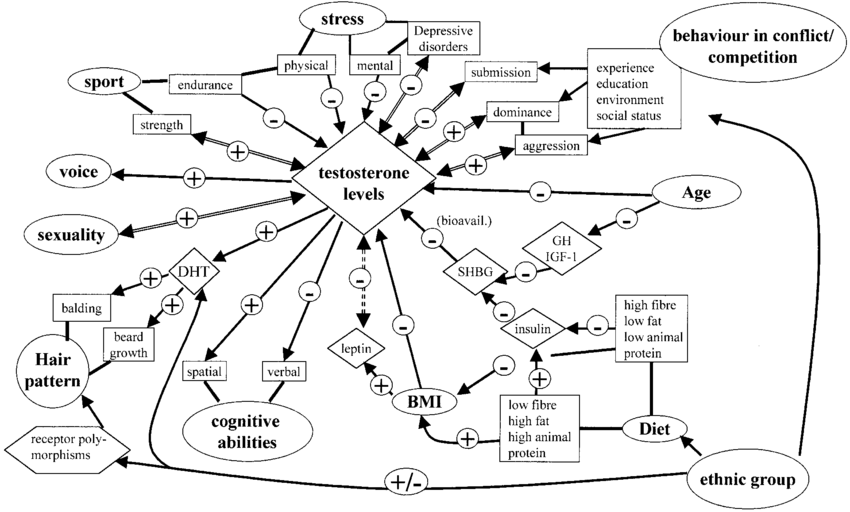The most confident, competitive and bold individuals in a group of social animals are often the alphas of the dominance hierarchy. These alphas exhibit leader-like or dominant behavior and gets things done, while conversely the betas exhibit follower-like or submissive behaviors and represent the majority of the herd.
The alphas have more responsibilities, providing for the pack and protecting them from threats, while being rewarded through preferential access to resources, including food and mates.
When it comes to us Homo sapiens, it’s no surprise that about 70% of senior executives are alpha males. These individuals not only take on responsibilities others would find overwhelming, they willingly do so.
What makes alphas confident, assertive, challenge-seeking, and able to take stress, is often attributed to the magic fuel: testosterone.
 |
Testosterone is often, but misleadingly, called the “male hormone”, and is one of the over 50 hormones regulated by the endocrine system. Though it is mainly synthesized in the male testis, it is also produced by the female ovary. Though produced in smaller quantities in females, they are actually more sensitive to it.

(This may be copyrighted, please contact me to remove.)
Among countless benefits, testosterone is known to improve spatial cognitive abilities, improve physical and mental endurance, as well as reduce anxiety and depressive disorders. Testosterone also increases muscle mass and lowers body fat.
Though, there is a price to pay.
While being the alpha may seem great, they are often short-lived, both in terms of their hierarchical rank and life expectancy.
Having a high level of testosterone also indirectly leads to higher metabolism, requiring more food to sustain. More importantly, alphas are also typically exposed to higher levels of stress, prompting the release of Cortisol.
In the short term, cortisol signals the body to prepare to handle danger by triggering higher blood pressure, elevating metabolism of fat, protein, carbohydrates, and keeps you alert. However, it also disrupts the testosterone biosynthesis pathway.
In other words, you quickly become fat and beta. That’s when you know you’re past the tipping point.
Long term exposure to cortisol and lowered testosterone, especially with increasing age, can lead to anxiety disorders, depression, brain fog, lowered metabolism, decreased muscle mass and increased weight. This leads to a vicious cycle causing even lower testosterone levels. In other words, you quickly become fat and beta. That’s when you know you’re past the tipping point.
The higher you go, the more stressful your work, the more likely I’m talking about you. Therefore, it is important to ensure that your endocrine system is always in the right condition to maintain a healthy level of testosterone. This includes proper management, and possibly biohacking, of these key factors: Diet, Exercise, Sleep, Sex, Lifestyle, Supplementation.
Consult a real doctor.